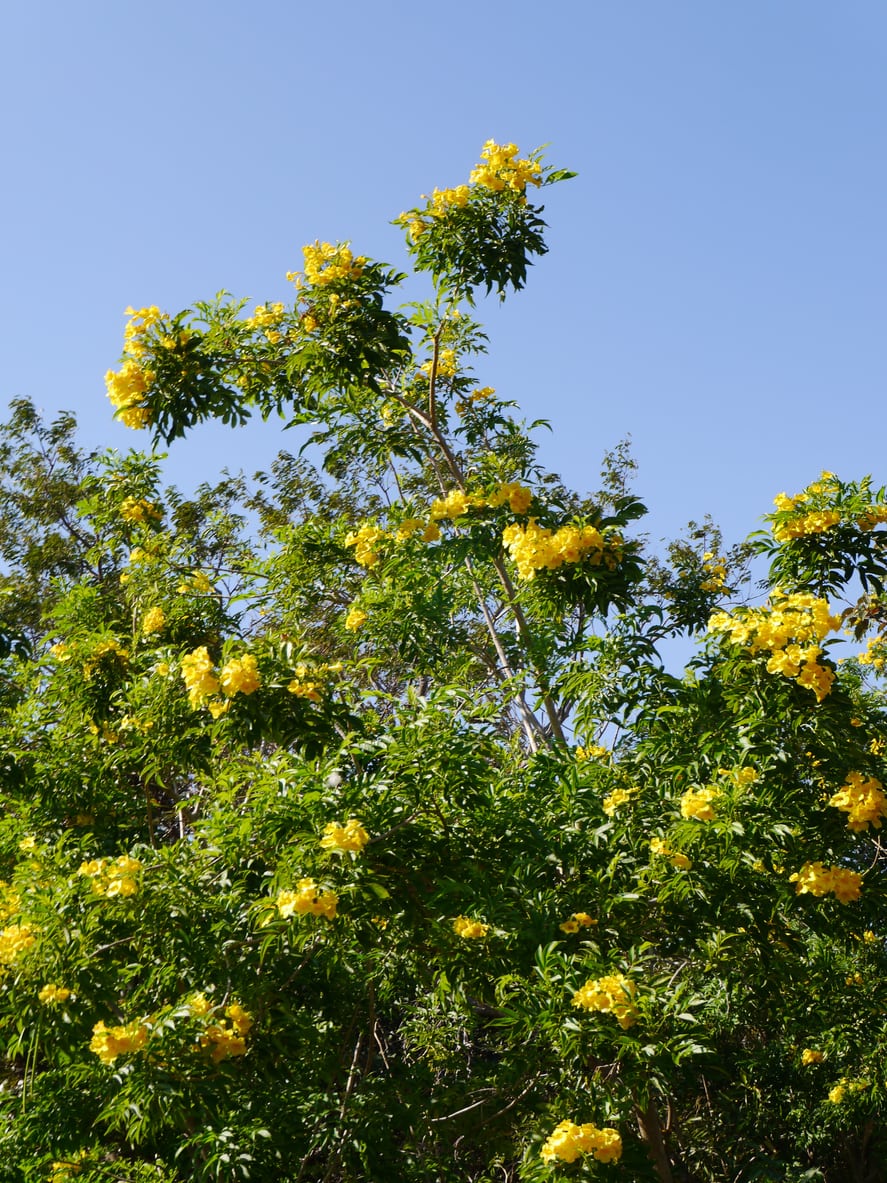Caring For Feather Duster Trees – How To Grow A Feather Duster Tree


The Brazilian feather duster tree is a large, fast-growing tropical tree that may also grow well in the desert and that is hardier to cold winter temperatures than is typically expected for a tropical plant. It is a stunning, tall tree with large, compound leaves and pretty flower spikes, a great option for gardeners who want a focal point and some additional shade.
Feather Duster Tree Information
The feather duster (Schizolobium parahyba), also known as Brazilian fern tree, is native to southern Mexico, Central America, and parts of South America, including Brazil, and is a member of the legume family of plants. Much larger than other legumes, this tree can grow up to 100 feet (30.5 m.) tall in its native range. Brazilian feather duster is so named for its large compound leaves. There can be as many as 2,000 leaflets per leaf. The trunk usually grows straight and tall with branches emerging toward the top. In spring, the leaves will drop, and then new growth comes in so quickly that there is hardly any bare period. Late spring to summer brings the long spikes of yellow flowers, followed by seed pods.
How to Grow a Feather Duster Tree
Caring for feather duster trees is not difficult if you have the right climate and environment for them. This is a tropical tree, but it can grow well in milder climates, like the coastal areas of southern California. Younger trees may be vulnerable to colder temperatures, but more mature trees can tolerate temperatures down to 25 degrees Fahrenheit (-4 Celsius). The tree thrives in heat, so a hot summer is essential. If you are in a dry climate, or have a drought, it may need to be watered regularly to help the tree grow and get established. With these conditions of heat and adequate water, a Brazilian feather duster will grow readily and quickly, shooting up into a tall, mature tree in just a few years.
Sign up for the Gardening Know How newsletter today and receive a free copy of our e-book "How to Grow Delicious Tomatoes".

Mary Ellen Ellis has been gardening for over 20 years. With degrees in Chemistry and Biology, Mary Ellen's specialties are flowers, native plants, and herbs.